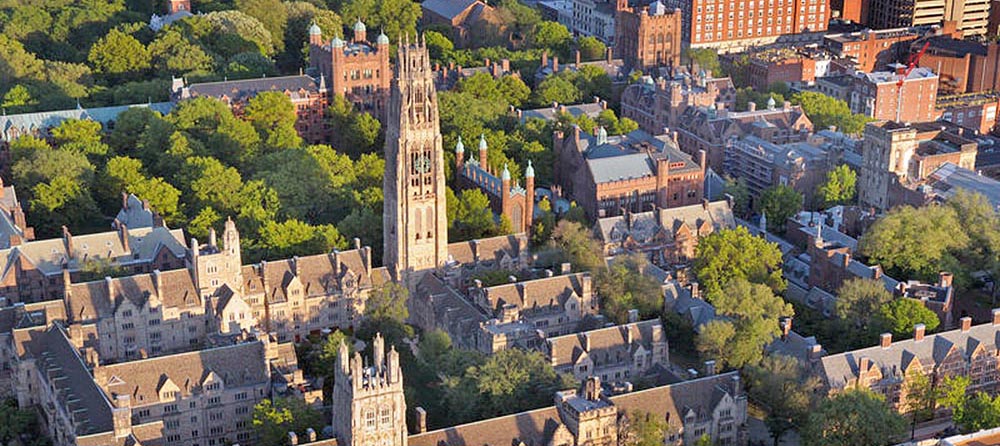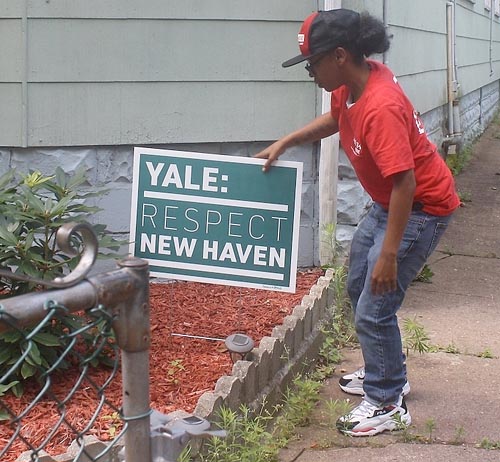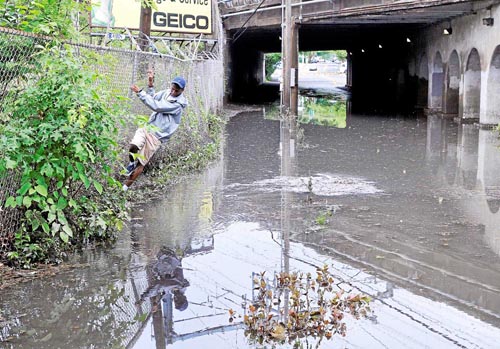Is Divestment Enough? What About the Impact of a University on its Host City?
 Student activists at universities have led the charge in the fossil fuel divestment movement. Divestment from high-profile institutions like Harvard and Columbia has grabbed headlines. Such divestment decisions are considered sign-posts of progress in the fight against fossil fuels to combat the climate crisis. While divestment has received much attention, it is only part of the whole picture for climate justice movements as they relate to universities. It is important to consider universities’ relationships to their host cities and spaces, which extend far beyond one financial decision.
Student activists at universities have led the charge in the fossil fuel divestment movement. Divestment from high-profile institutions like Harvard and Columbia has grabbed headlines. Such divestment decisions are considered sign-posts of progress in the fight against fossil fuels to combat the climate crisis. While divestment has received much attention, it is only part of the whole picture for climate justice movements as they relate to universities. It is important to consider universities’ relationships to their host cities and spaces, which extend far beyond one financial decision.
In his book In The Shadow of The Ivory Tower: How Universities Are Plundering Our Cities, author Davarian L. Baldwin writes, “There is no question that higher education institutions can deliver positive community outcomes for their cities. But a central question remains: what are the costs when colleges and universities exercise significant power over a city’s financial resources, policing priorities, labor relations, and land values?”
 New Haven Connecticut, which hosts Yale University, which I attend, is one example of a complex and, at times, exploitative city-school relationship. According to the movement Yale Respect New Haven,
New Haven Connecticut, which hosts Yale University, which I attend, is one example of a complex and, at times, exploitative city-school relationship. According to the movement Yale Respect New Haven,
40% of New Haven residents are currently unable to afford needs such as housing and food, and 34% of young kids live in poverty.
Their website says, “Years of austerity have undermined our ability to address inequality and poverty,”. Yale, in contrast, boasts an endowment of 42.3 billion dollars.
95 percent of students enrolled in college in America attend not-for-profit universities. Universities that hold non-profit status are tax-exempt, in consideration of their charitable purposes. This means that most universities do not pay real-estate taxes, which can put significant financial stress on host-cities. Sixty percent of real estate value in New Haven is owned by Yale and is therefore tax-exempt. Yale does not pay $146 million annually on the property value. As a result, over the past decade the city has been denied more than a $1 billion in revenue, money which could have been invested in critical social services in the midst of a global health emergency.
 New Haven is a coastal city, subject to the flooding and storms characteristic of climate change in New England. Fair Haven, a neighborhood in New Haven where flood-prone properties are concentrated, is 85.5 percent Black and Hispanic. When New Haven floods, a consequence of climate change induced by carbon-emitting industries, Yale is dually implicated in the excessive burden placed on marginalized communities; through its investments in the fossil fuel industry, and through withholding funds that could be used to rebuild and invest in climate-resilient infrastructure and initiatives.
New Haven is a coastal city, subject to the flooding and storms characteristic of climate change in New England. Fair Haven, a neighborhood in New Haven where flood-prone properties are concentrated, is 85.5 percent Black and Hispanic. When New Haven floods, a consequence of climate change induced by carbon-emitting industries, Yale is dually implicated in the excessive burden placed on marginalized communities; through its investments in the fossil fuel industry, and through withholding funds that could be used to rebuild and invest in climate-resilient infrastructure and initiatives.
City residents, organizations, and local officials are essential stakeholders; it is extremely important that students ally with local communities in their fight for divestment and endowment justice. In our movement at Yale, we have partnered with Local 33, the graduate student union, the New Haven Climate Movement led by local high schoolers, and New Haven Rising, a local economic, racial, and social justice movement. Sarah Miller, the Alder from the Fair Haven neighborhood, attended a key meeting our coalition held with the Connecticut Attorney General about Yale’s investments in fossil fuels.
Divestment movements preach reinvestment; our coalition demands that Yale reinvest the wealth it has accumulated from extractive and exploitative industries in much-needed social services for marginalized communities on campus and in the city of New Haven. However, investment starts with student organizers themselves, in time, effort, and a sense of responsibility and care for the issues at stake in your own host city. Divestment of fossil fuel funds from endowments remains critical. But your college or university’s responsibility for the state of your city’s disparities in income, housing, health care, real estate, and more will not end with divestment. Reinvesting and reducing inequity in host cities is the next step.
— RCC Presidential Fellow Molly Weiner
 RCC Presidential Fellow — Molly Weiner — Yale University
RCC Presidential Fellow — Molly Weiner — Yale University
RCC Presidential Fellow Molly Weiner is a sophomore at Yale University majoring in American Studies with a focus on politics and the environment and is pursuing a certificate in Advanced Spanish. She is an organizer with the Yale Endowment Justice Coalition, a movement of students, faculty, alumni, and community members who oppose the financialization of higher education and believe that Yale’s endowment is an inherently political force to be used for moral ends. In February 2021, Molly helped found the Fossil Free 5 coalition of divestment organizers at Yale, Princeton, MIT, Stanford, and Vanderbilt; organizers filed legal complaints with the attorneys general in their respective states, arguing that endowment investments in the fossil fuel industry are illegal under state law. Their activism was featured in CNN, The Washington Post, The Guardian, and Grist, among others.






